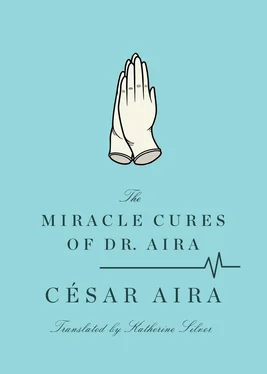After journeys, it was time for light, an element that included everything from photons to chiaroscuros depicting the volume of an object in a seventeenth-century copper engraving. . It was a broad heading because there has not been a single occasion not swathed in light — for example each one of the journeys previously processed had lighting, and a whole series of lighting possibilities existed for each one, as there did for every conceivable or manifest occasion. In fact, this “generalization” characterized every heading; also the journeys or displacements, because could there possibly be an occasion that didn’t imply, somehow or other, some displacement? So, everything was a journey, just as everything was light. . The screens’ trajectories doubled back upon themselves to make it possible to update a previous trajectory and allow it to serve a new function.
Light presented an additional difficulty, because light, or rather lighting, occurs at a determined intensity, which is the manifestation of a continuum of intensities that can only be arbitrarily calibrated. But was this a difficulty specific to the element “light,” or was it an attribute of all headings? Still within the heading already discussed, of journeys, there was also a continuum: the extension of the trajectory traveled. Or many continuums: of velocity, of the pleasure or displeasure with which the trip was made, the sum of the perceptions experienced en route. . And just as in the case of light, intensity was not the only continuum in play, for there was also the temperature, atmospheric resistance, color. .
Things were happening in less time than it would take to explain them. If Dr. Aira could have stopped to think he would have asked himself about the sequence “journeys-light.” Why had he started with the first? Why had he continued with the second? What kind of catalogue was he consulting? Where did the directory come from? From nowhere: there was no catalogue, no order. The entire operation of the Cure had the perfect coherence of the plausible, like a novel (again). It wasn’t like in the theater, where anything can happen, even something completely disconnected from all the rest; in that case, one could resort to a list of themes and proceed to remove each one using aesthetic criteria; in any case, if we wish to hold on to the theater metaphor, we would have to think about bourgeois theater, full of weighty psychosocial assumptions pretending to be plausible.
The plausible in its pure state, which was at work here, was characterized by simultaneity. Therefore, saying that after light came flags is just a figure of speech. The flags of all the nations of the world, those that had once flown and the possible ones that had accompanied them during their passage through History, with their colors and symbols, their silks or paper or retinal impressions, were underpinned by light and journeys. A luxuriant pom-pom of foldout screens cut through the entire sphere of the Universe, leaving some flags in and others out. Immediately, it turned to the cutting of hair. Screens. Hundreds of millions of barber shops, hairdressers, and scissors were excluded from the Cure’s New World, while others remained inside.
Collaborating with this simultaneity was the fact that throughout the process the screens that were doing the sorting continued along their trajectory a little farther (there were no established boundaries), and a bit at random, tracing lines of division through other, contiguous categories, on other planes and levels. Dr. Aira accepted these random contributions because he was in no position to reject any help he could get. By the same token, he began to notice that the same screen could function as more than one partition through the effect of the overlapping of fields of meaning.
He was moderately concerned about the fact that every “heading” coincided with a word. He was not unaware that the Universe cannot be divided into words, even less so those of one language. He was also using phrases (“the cutting of hair” was one example), and in general he tried to turn a deaf ear to words, to inhabit a space beyond them. But words constituted a good point of departure because of their connotations and associations, their so-called “like ideas.” Thus with the word “sex.” He traced a crazy zigzag with the screen, leaving outside half of all sexual activity, past and future. The bundles of panels that rose and fell according to the participant, the pleasure, the modality, et cetera, again formed the familiar pom-pom. This was particularly delicate material, so he divided it up with particular brutality. The patient might get out of bed only to discover that he had not had a particular lover, or that he liked boys, or that he had once slept with a Chinese woman, but it was all worth it, if the tradeoff was life. That the same thing would happen to the rest of the planet’s inhabitants, including the animals, was less important, because individual memories, which could only function with the parts that remained within the new universe, wouldn’t remember anything. Many beautiful love stories would vanish into the ether, or would never have been.
The ends of the screen continued to exceed the fields of meaning and create others that immediately, and almost through the impetus of their unfolding, cut huge and savage zigzags. Astronomy. The ability of parrots and blackbirds to speak. The diesel engine. The Assyrians. Coffee. Clouds. Screens, screens, and more screens. They were proliferating everywhere, and he had to pay close attention to make sure that no sector failed to be sorted. Fortunately, Dr. Aira had no time to notice the stress he was experiencing. Attention was key, and perhaps no man had ever brought as much of it to bear as he did for that hour. If the circumstances had been less serious, if he had been able to adopt a more frivolous perspective, he could have said that the entire procedure was an incomparable creator of attention, the most exhaustive ever conceived to exercise this noble mental faculty. And it did not require an extraordinary person; a common man could do it (and Dr. Aira would have been quite satisfied to become a common man), for the Cure created all the attention it demanded. It wasn’t like those video games, which are always trying to trick it or avoid it or get one step ahead of it; to continue with this simile, it should be said that the operator of the Cure was his own video game, his own screen, and his own decoys, and that far from defying attention, they nurtured it. Despite all this, the effort was superhuman, and it was yet to be seen if Dr. Aira could hold out till the end.
His depletion was physical as well as mental. For although the screens were only imaginary, the effort needed to unfold them and stretch them across the vast teeming terrains of the Universe was very real. He held them along their upper edges between the index finger and thumb of both hands, and he opened them by stretching his arms out wide, and since he could never quite reach, he had to move around, taking little leaps from side to side. . then he would return to touch up the line, expand or contract the angles. In general he avoided straight lines, which were drawn when he stretched the screens out too fully, because the straight line was too categorical and the selection had to be more nuanced: a fact could be included or excluded at the beginning or end of a folded panel — a singularity, which, however small, could turn out to be crucial; anything could be.
And there were screens that extended upward, or downward. . To stretch them out he had to stand on his tiptoes, or jump on a chair; if it descended, he threw himself on the floor or scrambled under the bed, under the edge of the rug — as if he were trying to bore a hole through the floor. He retreated and advanced as he stretched the screen overhead, all the while adjusting the angle or the direction of another one under him with the tip of his toe. As he could see nothing besides his screens, and the jungle of iridescent elements they were cleaving through, his movement around the room always ended with him banging into the walls, the furniture. . He stumbled frequently, and he was down on the floor more than he was standing up. Depending on how much impetus he had, he was either stretched out or rolling around doing spectacular half somersaults; but he took advantage of these involuntary plunges to hang the screens in places he couldn’t have reached otherwise. Everything was useful.
Читать дальше












